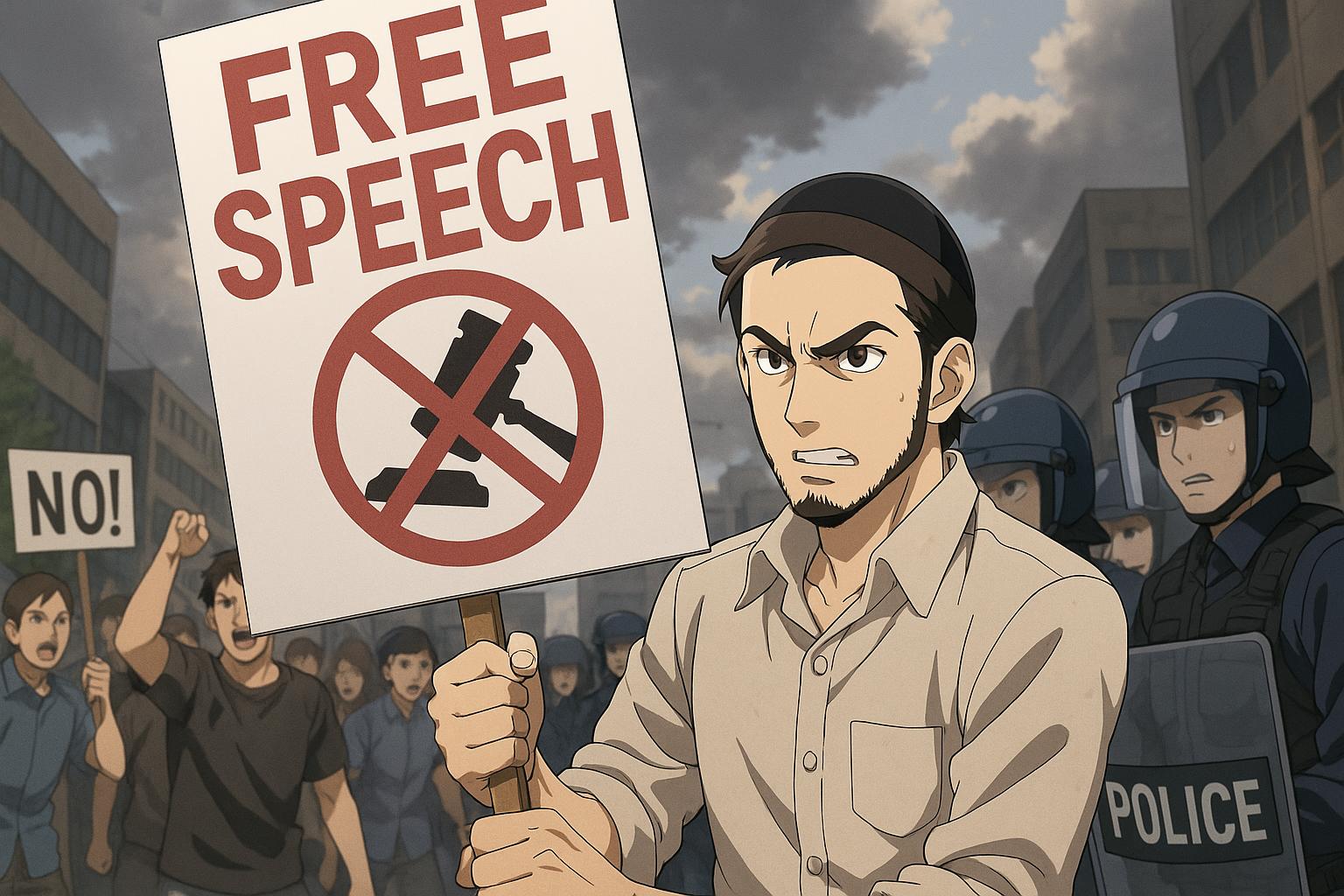A recent case involving a Jewish man charged with “racially aggravated harassment” has ignited discussions around free speech, policing, and the complex landscape of political protest in the UK. This incident unfolded during a counter-protest in Swiss Cottage on 20 September, where the man held a controversial placard featuring an image of Hassan Nasrallah, the leader of Hezbollah, accompanied by the phrase “beep, beep, beep.” The placard referenced Operation Grim Beeper, an Israeli military offensive that saw the simultaneous detonation of Hezbollah's communication devices, resulting in significant casualties.
The Metropolitan Police's decision to charge the protester under the Public Order Act has attracted scrutiny. The police suggested that the imagery could incite racial hatred against pro-Palestinian demonstrators, prompting questions about the intent and interpretation of political satire. During a police interview, an officer remarked on the potential for escalating tensions with pro-Hezbollah supporters, to which the protester's lawyer retorted about the legality of associating demonstrators with a proscribed terrorist group. The lack of follow-up charges against pro-Hezbollah participants has further compounded perceptions of inconsistency in law enforcement approaches.
Interestingly, just weeks after his initial arrest, the Crown Prosecution Service (CPS) dropped the case, declaring insufficient evidence for a realistic prospect of conviction. The Met Police later acknowledged that an officer's statement regarding the pro-Hezbollah association was a mischaracterisation, which underscores the challenges they face in managing politically charged protests. The spokesperson for the Met expressed intentions to learn from the CPS's decision, acknowledging the complex dynamics at play in the context of ongoing protests against Israel following the recent conflict escalation from 7 October.
The complexities of policing protests linked to the Israeli-Palestinian conflict are not new. A broader scrutiny of protests, particularly those deemed pro-Palestinian, indicates heightened police vigilance and arrests for displaying symbols associated with proscribed groups like Hezbollah and Hamas. Instances where individuals have been arrested for inciting racial hatred at such protests serve as stark reminders of the fine line law enforcement must tread between safeguarding public order and upholding freedom of expression.
Moreover, the legal ramifications for activists expressing views that align with these groups have been increasingly documented. Activist Tony Greenstein recently faced a suspended prison sentence for his involvement in a protest against an Israeli arms firm, meanwhile being charged with a terrorism-related offence for alleged social media support of Hamas. Such cases contribute to a narrative that underscores the tensions surrounding political activism, the law, and the limits of acceptable discourse in the public sphere.
As protests intensified in recent months, the Met reported making 28 arrests under the Terrorism Act. These arrests reportedly pertain to the wearing of associated symbols and other offences, revealing the police's intensified focus on manifestations of support for proscribed organisations. While the intent may stem from a place of safeguarding public safety, questions about racial profiling and excessive force in the policing of these protests have raised alarms among civil rights advocates.
The discourse surrounding freedom of expression continues to be complex in the UK, particularly amid protests that are pulsating with political significance. The juxtaposition of free speech rights against the potential for hate speech remains contentious, especially as divided opinions on sensitive issues like the Israeli-Palestinian conflict manifest publicly.
As events unfold, it is necessary to consider not just the actions of police and protesters but the broader societal implications of how protests are subjugated to the law—where political expression risks being tempered by fears of incitement, complicating the fundamental rights of speech and assembly in one of the world's most vibrant democracies.
Reference Map:
- Paragraph 1 – [1]
- Paragraph 2 – [1], [2]
- Paragraph 3 – [1], [4]
- Paragraph 4 – [3], [6]
- Paragraph 5 – [2], [5])
- Paragraph 6 – [4], [7]
Source: Noah Wire Services
